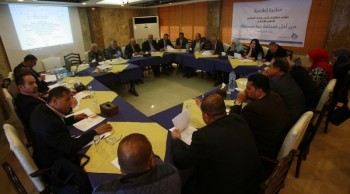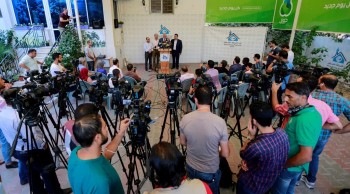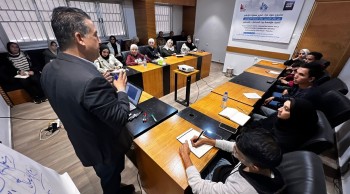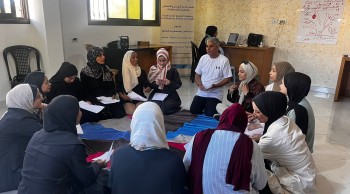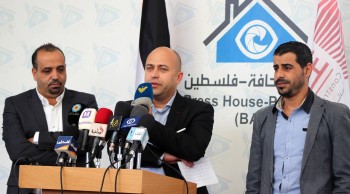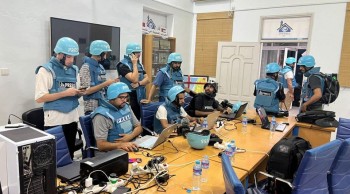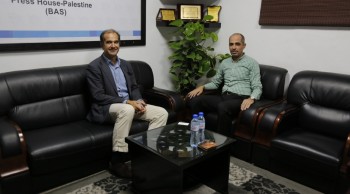Gaza, Tues, March 11 --- Sponsored by Press House-Palestine, youth journalists’ team organized a meeting with economic experts; to discuss the reality and the future of Gaza’s economy.
Economic experts consented on the poor economic conditions of the Gaza Strip, ensuring that the economy is on the edge; as a result of the siege imposed on the strip for more than seven years, and the closure of tunnels between Egypt and Gaza.
Maher El-Taba’a, the director of the chamber of commerce in Gaza, said: “In light of Israeli siege and the prevention of construction materials' access to Gaza, along with closing the tunnels; the economic condition of the Gaza Strip became extremely hard.”
“Israel allows the access of 350 to 400 trucks to the Strip through Karm Abu Salem crossing,” He said, ensuring that this amount doesn’t cover the needs of Gaza’s markets.
He also added that:”Almost half million people don’t have their daily income, clarifying that the unemployment rate might reach 43% if the situation continued as it is.”
Dr. Samir Abu Mdalalah, dean of the faculty of commerce and economics in Al-Azhar University, said:”The economic condition in the Strip is poor; as a result of Israeli control over crossings as well as the unjust Paris agreement.”
“Israel controls taxes rates, Palestinian crossings, projects’ types, and customs’ collection; to exercise pressure on the Palestinian national authority,” Abu Mdalalah added.
He also clarified that the political division and the Israeli siege had substantially weakened the economic conditions in the Strip; calling for the importance of ending the division and putting an effective strategy for developing the economy.
Regarding the tunnels, Dr. Samir said:”Tunnels was an obligatory option, and it had negatively affected the economy; as it lessened the international pressure on Israel to end the siege imposed on Gaza.”
He pointed out that the tunnels provided jobs to 12,000 workers, and greatly covered the needs of Gaza’s markets, where 800 millionaires emerged as a result of tunnels between Gaza and Egypt.
Dr. Samir added:”30% of the PNA employees are suffering from poverty; as a result of not implementing the principles of social justice in salaries’ scales.”
He stressed that the economic development cannot be achieved in light of occupation, and calling the United States to force Israel to stop the siege on the Strip.
Dr. Mohammed Migdad, dean of the faculty of commerce in the Islamic university, said:”The tunnels didn’t solve the economic dilemma in the Strip, on contrary, it had destructive effects.”
Migdad called for stopping using the tunnels that destroyed the economy, and for opening the crossings to facilitate exports and imports movement.
He also stressed the importance of an urgent intervention for improving the economy; to save the future of Palestinian youth.
“The political and economic structure depends on external financing; which is not even enough for covering salaries and basic services,” He added, pointing out to the importance of ending the division.
.jpg)

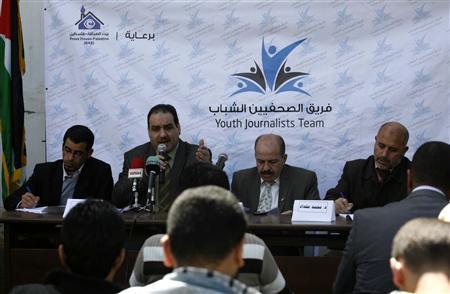
.JPG)

